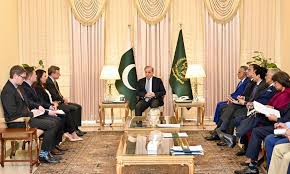Crises have split European voters into five ‘tribes’, survey suggests

Brussels: Europe’s voters are no longer divided into left or right, pro- or anti-EU camps, a survey suggests, but into five distinct tribes whose conflicting concerns are likely to dominate nearly 20 elections across the continent this year.
The report argues that Europeans’ lives have been affected by five major crises in recent years – the climate emergency, the 2015 migration crisis, global economic turmoil, the war in Ukraine and Covid – and suggests voters in European parliament and national elections this year will focus on the one they feel most concerned by.
The report’s authors argue that all five of these crises “were felt across Europe, although to varying intensities in different corners of the continent; experienced as an existential threat by many Europeans; dramatically affected government policies – and are by no means over”.
The study’s co-author Mark Leonard said: “In 2019, the central struggle was between populists who wanted to turn their back on European integration, and mainstream parties that wanted to save the European project from Brexit and Trump.”
“This time around, it will be a contest between competing fears of rising temperatures, immigration, inflation, and military conflict,” Leonard, the director of the Berlin-based European Council on Foreign Relations (ECFR) thinktank, said.
Ivan Krastev of the Centre for Liberal Strategies in Sofia, Bulgaria, said the study showed that in terms of how they saw the EU, citizens were “drifting away from the ideological bonds of right and left” and were instead swayed more by their views of these crises.
The report, A Crisis of One’s Own: the Politics of Trauma in Europe’s Election Year, suggests mainstream political parties might struggle to mobilise voters on issues such as the future of the European project, suggesting instead that they should “examine and propose solutions” for voters’ most urgent concerns.
Overall, the report’s authors said, the climate crisis and immigration would prove the two biggest mobilisers in the election campaigns due to be fought across Europe in 2024 – as they were in the Dutch parliamentary poll in November.
Dutch voters placed Geert Wilders’ anti-immigrant Freedom party (PVV) top of the poll, with the pro-environment Green-Labour alliance headed by the former European Commission vice-president Frans Timmermans finishing second.
“The struggle between these two ‘tribes’ is … a clash of two ‘extinction rebellions’,” the authors said. “Climate activists fear the extinction of human and other life; anti-migration activists fear the disappearance of their nations and cultural identity.”
Voters who view immigration as the biggest crisis mostly back rightwing parties such as the National Rally in France or Germany’s Alternative für Deutschland (AfD); those who prioritise the climate tend to support green or leftist parties such as Spain’s Socialists or Poland’s Left.
One early political consequence of this was the “Europeanisation” of migration as the EU sought to assuage voter concerns, the authors said, and, simultaneously, the “renationalisation” by rightwingers of the debate around slowing global heating.
Besides the European parliament election, due in June, voters in 15 European countries – including Portugal, Belgium, Austria, Croatia, Lithuania and the UK – go to the polls this year in national parliamentary and presidential ballots.
The survey – of nine EU member states representing 75% of the bloc’s population, plus Great Britain and Switzerland – suggested that 73.4 million European voters believed the climate emergency was the single most important crisis affecting their future.
Almost as many (72.8 million) felt Covid – which exposed the vulnerability of national healthcare systems, with major economic consequences – was the most important, while 69.3 million said global economic turmoil was their chief concern, 58.2 million opted for immigration, 49 million for Russia’s invasion of Ukraine, and 46.4 million chose none of the five.





